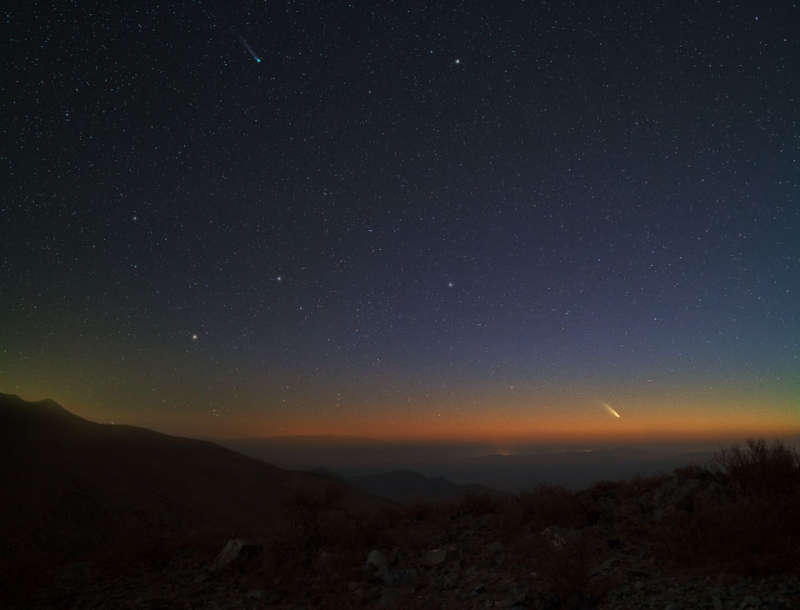
|
Credit & Copyright: Yuri Beletsky
(ESO)
Explanation:
Two impressive comets will both reach their peak brightness during the next two weeks.
Taking advantage of a rare imaging opportunity,
both of these comets were captured in the sky together last week over the
Atacama desert in
South America.
Comet C/2012 F6 (Lemmon), visible on the upper left of
the above image, is sporting a long tail dominated by glowing green ions.
Comet C/2011 L4 (PanSTARRS), visible near the horizon on the lower right, is
showing a bright tail dominated by dust reflecting sunlight.
The tails of both comets point approximately toward the
recently set Sun.
Comet Lemmon will be just barely visible to the unaided eye before sunset in
southern skies for the next week, and then
best viewed
with binoculars as it fades and moves slowly north.
Comet PanSTARRS, however, will remain visible in southern skies for only a few
more days,
after which it will remain bright enough to be
locatable with the unaided eye as it moves into northern skies.
To find the giant melting snowball PanSTARRS, sky enthusiasts should
look toward the western horizon just
after sunset.
Deep sky observers are also
monitoring the brightening
of
Comet C/2012 S1 (ISON),
which may become one of the brightest objects in the entire night sky toward the
end of 2013.
|
January February March April May June July August September October November December |
| ||||||||||||||||||||||||||||||||||||||||||||||||
NASA Web Site Statements, Warnings, and Disclaimers
NASA Official: Jay Norris. Specific rights apply.
A service of: LHEA at NASA / GSFC
& Michigan Tech. U.
Based on Astronomy Picture
Of the Day
